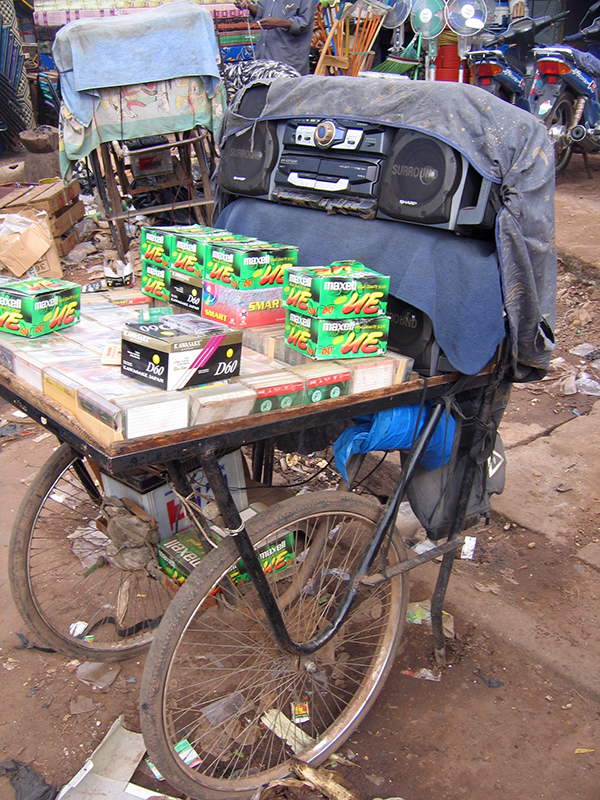Money Trouble
|
Chapter 5: Money Trouble interrogates the idea of intellectual property through the shifting politics of culture in postcolonial Mali. Beginning with widespread anxieties about the social and economic value of the arts in an era of private markets and decentralized politics, it presents a local genealogy of copyright and its criminalized corollary, piracy. Emphasizing the production, circulation, and performance of music, this history reveals the longstanding and steadily deepening social, political, and economic precarity that has shaped the subjectivity of the contemporary Malian artist.
|
KEY TERMS
WHO'S WHO
QUESTIONS FOR DISCUSSION
FURTHER READING & DISCUSSION
|
